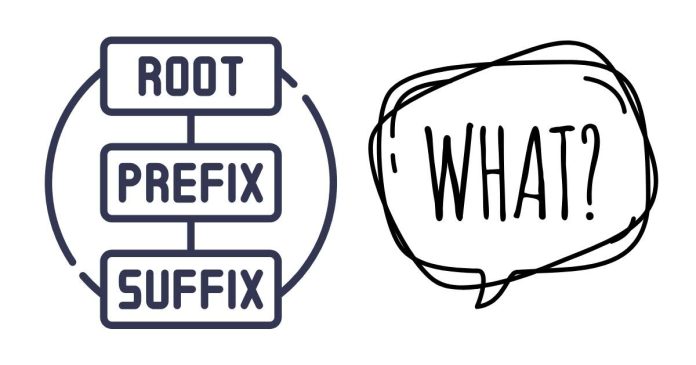The English language is a fascinating tapestry woven with prefixes, suffixes, and root words. Prefixes are added to the beginning of words to modify their meaning, while suffixes are appended to the end. But what about words that have both a prefix and a suffix? These words are not only intriguing but also illustrate the dynamic and flexible nature of the English lexicon. Let’s get into this topic to uncover some examples and explore how these linguistic components work together.
Understanding Prefixes and Suffixes
Before we get to the examples, let’s briefly define what prefixes and suffixes are:
- Prefix: A group of letters placed at the beginning of a word to alter its meaning. Examples include “un-” (meaning not), “re-” (meaning again), and “pre-” (meaning before).
- Suffix: A group of letters added to the end of a word to change its form, often adjusting its grammatical role. Common suffixes include “-ly” (to form adverbs), “-ful” (meaning full of), and “-ness” (to form nouns).
When a word contains both a prefix and a suffix, it’s like a linguistic sandwich: the root word is the filling, while the prefix and suffix provide additional layers of meaning.
Examples of Words with Both a Prefix and a Suffix
Here are some examples of words that have both a prefix and a suffix:
- Unhappiness
- Prefix: “un-” (not)
- Root: “happy”
- Suffix: “-ness” (state or quality)
- Meaning: The state of not being happy.
- Refinement
- Prefix: “re-” (again)
- Root: “fine”
- Suffix: “-ment” (the result of an action)
- Meaning: The process of improving something to a higher standard.
- Misunderstood
- Prefix: “mis-” (wrongly)
- Root: “understand”
- Suffix: “-ed” (past tense)
- Meaning: Not understood correctly.
- Disrespectful
- Prefix: “dis-” (not or opposite of)
- Root: “respect”
- Suffix: “-ful” (full of)
- Meaning: Showing a lack of respect.
- Overachiever
- Prefix: “over-” (excessive)
- Root: “achieve”
- Suffix: “-er” (one who performs an action)
- Meaning: A person who achieves more than expected.
- Prehistoric
- Prefix: “pre-” (before)
- Root: “history”
- Suffix: “-ic” (relating to)
- Meaning: Relating to the time before recorded history.
- Unsurprisingly
- Prefix: “un-” (not)
- Root: “surprise”
- Suffix: “-ingly” (in a manner)
- Meaning: In a manner that is not surprising.
Why Are These Words Important?
Words with both prefixes and suffixes showcase the adaptability of the English language. By adding these elements to root words, we can create new meanings, expand our vocabulary, and express complex ideas succinctly. Understanding how prefixes and suffixes work also enhances our ability to decipher unfamiliar words, making it easier to navigate technical, academic, or everyday language.
How to Spot Words with Both Prefixes and Suffixes
To identify words that have both a prefix and a suffix, follow these steps:
- Locate the Root Word: Identify the core part of the word that provides its basic meaning.
- Check for a Prefix: Look for a group of letters at the beginning of the word that modifies its meaning.
- Check for a Suffix: Look for a group of letters at the end of the word that changes its form or role.
Words with both prefixes and suffixes are more than just interesting linguistic constructs; they are tools that enrich our communication and help us articulate ideas with precision. By exploring and understanding these words, we gain deeper insight into the structure and beauty of the English language. So, the next time you encounter a complex word, take a moment to dissect it — you might uncover a prefix, a suffix, and a fascinating story in between.


